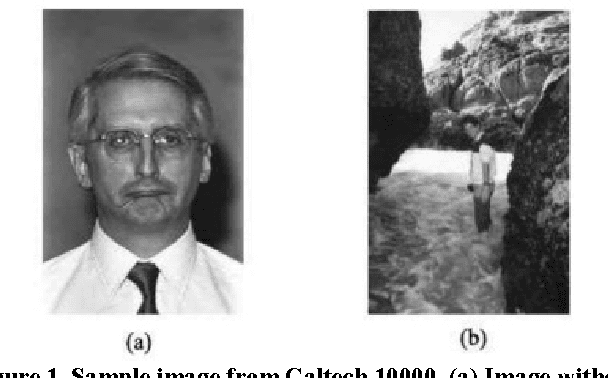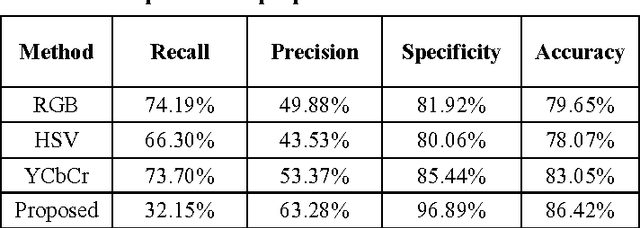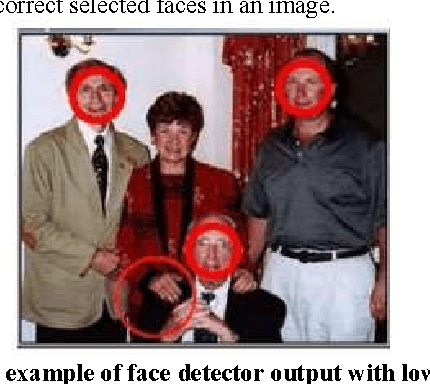Mohd Shafry Mohd Rahim
Enhanced Facial Recognition Framework based on Skin Tone and False Alarm Rejection
Feb 14, 2017



Abstract:Face detection is one of the challenging tasks in computer vision. Human face detection plays an essential role in the first stage of face processing applications such as face recognition, face tracking, image database management, etc. In these applications, face objects often come from an inconsequential part of images that contain variations, namely different illumination, poses, and occlusion. These variations can decrease face detection rate noticeably. Most existing face detection approaches are not accurate, as they have not been able to resolve unstructured images due to large appearance variations and can only detect human faces under one particular variation. Existing frameworks of face detection need enhancements to detect human faces under the stated variations to improve detection rate and reduce detection time. In this study, an enhanced face detection framework is proposed to improve detection rate based on skin color and provide a validation process. A preliminary segmentation of the input images based on skin color can significantly reduce search space and accelerate the process of human face detection. The primary detection is based on Haar-like features and the Adaboost algorithm. A validation process is introduced to reject non-face objects, which might occur during the face detection process. The validation process is based on two-stage Extended Local Binary Patterns. The experimental results on the CMU-MIT and Caltech 10000 datasets over a wide range of facial variations in different colors, positions, scales, and lighting conditions indicated a successful face detection rate.
 Add to Chrome
Add to Chrome Add to Firefox
Add to Firefox Add to Edge
Add to Edge